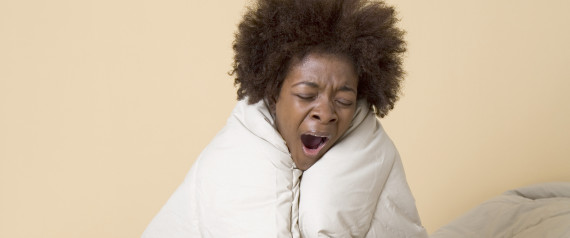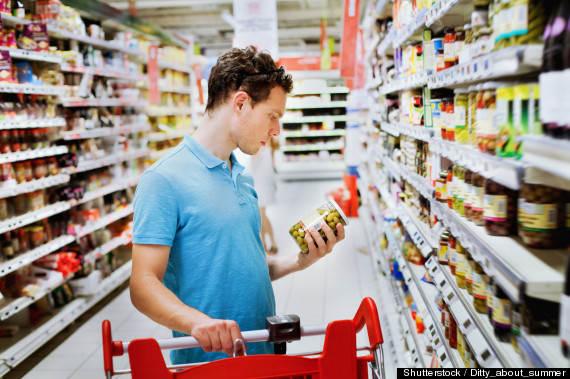7 Things Not To Do When You're Sleep Deprived
am EST

You know getting too little sleep makes you tired and crabby and hungry and forgetful. But other than waking up on the wrong side of the proverbial bed, how bad is the occasional sleep-deprived day, really?
It turns out just a little bit of extra sleep goes a long way in protecting your health, boosting your memory and keeping you safe from potentially-fatal events like heart attacks and car accidents.
Just one night of sleep deprivation can also set you up for a number of everyday missteps we'd all rather avoid. Here are a few of those things you shouldn't do when you haven't had enough sleep.
ight of sle

You wouldn't get behind the wheel after having a few drinks, but you also shouldn't get behind the wheel without your 40 winks. In a 2012 study, researchers found thatdrunk and sleepy drivers are both at least twice as likely to be responsible for an accident, Reuters reported. "We know from experimental studies that just four hours of sleep loss will produce as much impairment as a six pack," Christopher Drake, an associate scientist at the Henry Ford Hospital Sleep Disorders and Research Center in Detroit, told Reuters.
But it's not just sleepy car drivers who should hand over the keys. Pilots, train operators and truck drivers all report errors on the job due to sleepiness, including "near misses," according to the National Sleep Foundation.
Make Important Decisions
There's a biological reason that something seems like a good idea when you're tired, when it might not actually be the best bet. In a 2011 study, researchers observedincreased brain activity in areas that assess positive outcomes after sleep deprivation. There was also decreased activity in brain areas that assess negative outcomes. Essentially, then, skimping on sleep skews our decision-making powers toward the optimistic, and may therefore sway you toward signing the lease or taking the job without realistically weighing the pros and cons. The authors suggested changes in levels of the neurotransmitter dopamine may play a role, the LA Times reported.
Go Grocery Shopping

You already know you shouldn't fill up your cart when you're hungry, but if you're sleepy to boot, you're in for some unwise choices: A 2013 study found that sleep-deprived shoppers purchased more and higher-calorie food than they would have during a well-rested trip to the supermarket. "We hypothesized that sleep deprivation's impact on hunger and decision making would make for the 'perfect storm' with regard to shopping and food purchasing -- leaving individuals hungrier and less capable of employing self-control and higher-level decision-making processes to avoid making impulsive, calorie-driven purchases," author Colin Chapman, MSc, of Uppsala University, said in a statement. The men in the study loaded up their carts with 9 percent more calories and 18 percent more grams of food after a night of little sleep. "Our finding provides a strong rationale for suggesting that patients with concerns regarding caloric intake and weight gain maintain a healthy, normal sleep schedule," Chapman said.
Or Online Shopping, For That Matter
If decision making is skewed and impulsiveness amplified, we think it's safe to say that shopping decisions beyond groceries may also be affected. With more difficulty in the logical reasoning department and impaired judgement, the day after a night of fitful sleep isn't the day to decide you're going to buy that designer bag.
Grab An Energy Drink

Yes, you're tired, but a brisk walk, a quick workout or a nap, if you can swing it, is a much wiser choice than the nearest caffeine jolt, considering the copious sugar andmysterious compounds in many popular energy drink brands. Plus, many cans contain surprisingly little actual caffeine, especially compared to a strong cup of coffee (not to mention real coffee boasts actual health benefits).
Brag About It
Perhaps nothing fosters an unhealthier sleep climate than participating in what HuffPost president and editor-in-chief Arianna Huffington dubbed "sleep deprivation one-upmanship" in a 2010 TED Talk. In reality, a very select few of us are actual short sleepers, meaning we really can get by on just a few hours each night. The rest of us should help change the conversation about sleep by being more aware of the messages we send.
Pick A Fight

The morning after a night of tossing and turning is not the time to bring up that serious talk you've been meaning to have with your bed partner. That's because you're likely to be highly emotional when you're lacking in sleep -- and not in a good way. "It's almost as though, without sleep, the brain had reverted back to more primitive patterns of activity, in that it was unable to put emotional experiences into context and produce controlled, appropriate responses," Matthew Walker, senior author of a 2007 study on the subject, said in a statement. The research found thatsleep-deprived brains were 60 percent more reactive to negative and disturbing images, USA Today reported.
ALSO ON HUFFPOST: